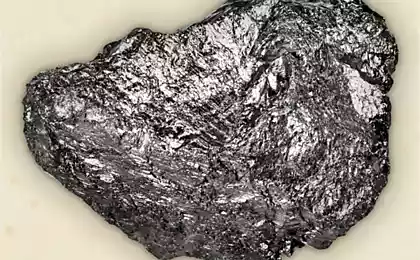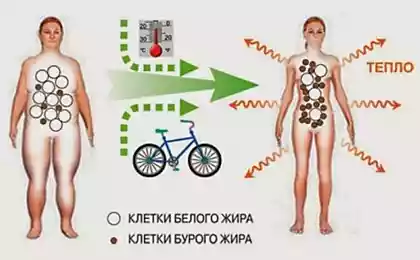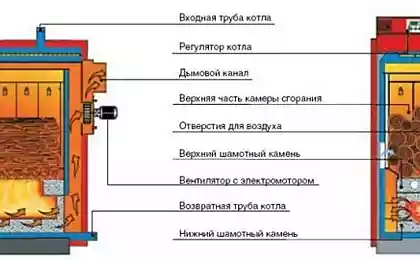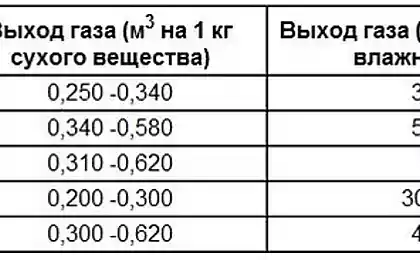447
Europe protests against lignite
Thousands of people formed a human chain in Germany and Poland. 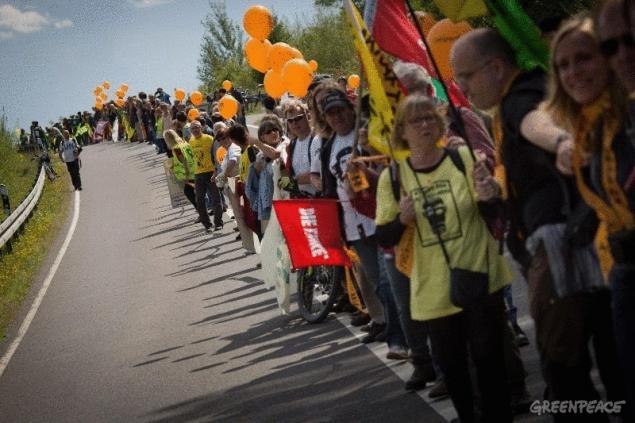
At the end of last week 7500 people from almost thirty countries formed a human chain length of eight kilometers, which stretches from the city of Circuits in Germany to Grabica in Poland through the border river Neisse. Thus, the people expressed their protest against plans of extraction of brown coal by open method on Europe's largest oilfield. As a result, his development will suffer both cities that joined the human chain.
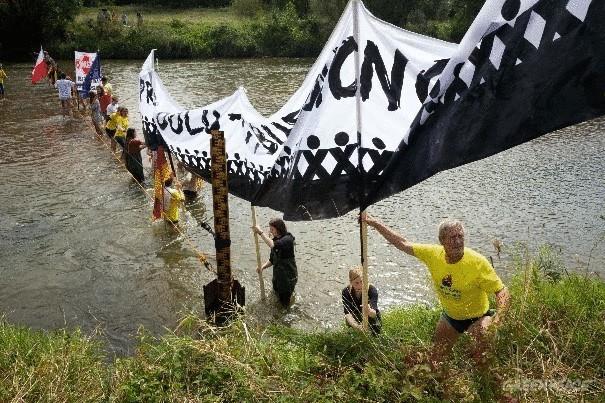
"Seven and a half thousand people from around the world showed the desire to have a decent future, and to the use of brown coal. It's impressive and gives people the strength and courage to fight the plans for the extraction of lignite. We will not surrender and we will continue our work until then, until politicians realize that most people are against the projects related to brown coal", — says head of Department for climate and energy Greenpeace Poland Mary Pakarinen.
Energy Corporation Vattenfall and PGE plan to start development of six quarries in the district of Lausitz (Lusatia) near the Polish-German border. If this project materializes, will be destroyed twenty villages and more than 6,000 people will lose their homes. In many cases it happens against their will. Besides coal mining on these developments will mean an additional 2 billion tons of carbon dioxide (CO2), that is two times more than the whole of Germany produces in a year. "A little while, and Lusatia will be the site of Europe's largest environmental crime. These projects must be stopped, otherwise Europe will never be able to achieve the goals it has set itself in combating climate change," says Pakarinen.
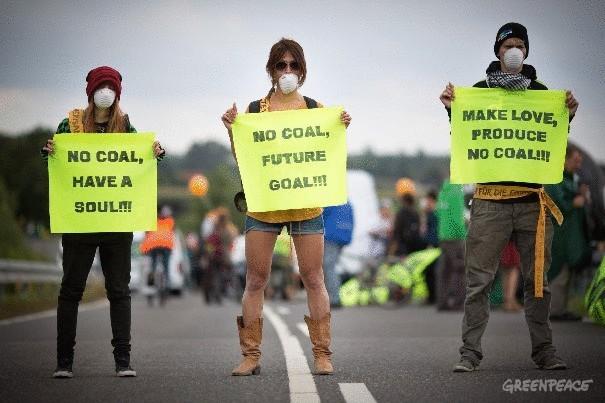
Resistance to the projects of development of brown coal, which will lead to catastrophic consequences, is growing not only in Germany but also in Poland. Coal plants still produce 90 % of electricity in the country. However, Greenpeace research shows that Poland is able to replace half of its coal demand from renewable energy by 2030 in addition, alternative energy will provide more than 100,000 jobs. "Many poles stopped like that, the government turns the country into a coal Museum under the open sky instead of having to switch to renewable energy, emphasizes Pakarinen. — A living chain gave people the opportunity to apply for it your voice."
This action was organized by local protest groups with the support of environmental organizations like Greenpeace, "friends of the Earth" and "Climate Alliance".
Source: www.greenpeace.org

At the end of last week 7500 people from almost thirty countries formed a human chain length of eight kilometers, which stretches from the city of Circuits in Germany to Grabica in Poland through the border river Neisse. Thus, the people expressed their protest against plans of extraction of brown coal by open method on Europe's largest oilfield. As a result, his development will suffer both cities that joined the human chain.

"Seven and a half thousand people from around the world showed the desire to have a decent future, and to the use of brown coal. It's impressive and gives people the strength and courage to fight the plans for the extraction of lignite. We will not surrender and we will continue our work until then, until politicians realize that most people are against the projects related to brown coal", — says head of Department for climate and energy Greenpeace Poland Mary Pakarinen.
Energy Corporation Vattenfall and PGE plan to start development of six quarries in the district of Lausitz (Lusatia) near the Polish-German border. If this project materializes, will be destroyed twenty villages and more than 6,000 people will lose their homes. In many cases it happens against their will. Besides coal mining on these developments will mean an additional 2 billion tons of carbon dioxide (CO2), that is two times more than the whole of Germany produces in a year. "A little while, and Lusatia will be the site of Europe's largest environmental crime. These projects must be stopped, otherwise Europe will never be able to achieve the goals it has set itself in combating climate change," says Pakarinen.

Resistance to the projects of development of brown coal, which will lead to catastrophic consequences, is growing not only in Germany but also in Poland. Coal plants still produce 90 % of electricity in the country. However, Greenpeace research shows that Poland is able to replace half of its coal demand from renewable energy by 2030 in addition, alternative energy will provide more than 100,000 jobs. "Many poles stopped like that, the government turns the country into a coal Museum under the open sky instead of having to switch to renewable energy, emphasizes Pakarinen. — A living chain gave people the opportunity to apply for it your voice."
This action was organized by local protest groups with the support of environmental organizations like Greenpeace, "friends of the Earth" and "Climate Alliance".
Source: www.greenpeace.org
